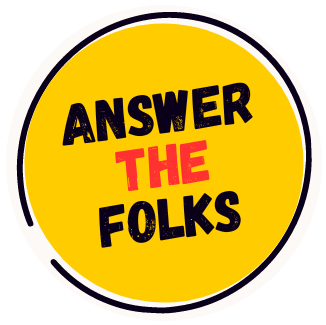How to Give Answers That Actually Help People
You see a question in your area of expertise and you’re excited to help. You know exactly what the person needs to hear, and you craft what you think is a comprehensive, helpful response. But when you read it back before posting, something feels off. Your answer sounds either too formal and detached, or too casual and unprofessional. The knowledge is there, but the delivery isn’t quite right.
This scenario plays out thousands of times daily across Q&A platforms. Well-meaning experts and community members want to share their knowledge, but struggle to communicate effectively. The difference between an answer that gets upvoted, marked as helpful, and genuinely solves someone’s problem versus one that gets ignored often comes down to how well it’s written.
Here’s what many community contributors don’t realize: giving great answers isn’t just about having the right information—it’s about presenting that information in a way that’s clear, accessible, and genuinely helpful to the person asking.
The Art of Helpful Communication
Answering questions online requires unique communication skills. You’re writing for someone you’ve never met, solving problems you understand only through brief descriptions, and competing with other answers for attention and credibility.
The challenge intensifies when considering diverse backgrounds of questioners and answerers. In community platforms where “everyone is a part of knowledge sharing: contribute an answer, leave a comment, and vote,” your writing must be accessible to people with different expertise levels, cultural backgrounds, and communication preferences.
Common scenarios include technical explanations too complex for beginners, answers that sound condescending, responses that lack warmth despite being grammatically correct, detailed answers that bury key information, and well-intentioned advice that comes across as unclear. When someone asks a question online, they’re often frustrated or facing deadlines—your answer might be their lifeline, but only if communicated effectively.
Why Basic Writing Tools Miss the Mark
Most people answering questions rely on standard grammar checkers, but these weren’t designed for community-based knowledge sharing. They catch obvious typos but miss nuanced communication issues that differentiate helpful from unhelpful answers.
Q&A writing requires balancing authority with accessibility, being thorough without overwhelming, and maintaining helpfulness while conveying complex information. Generic tools don’t understand these requirements or help achieve the right balance for effective community communication.
Answer writing also involves context switching between different question types and audiences—adapting whether you’re explaining technical concepts to beginners, providing professional peer advice, or offering step-by-step practical guidance.
Enter Trinka: Grammar Checking for Helpful Communication
Trinka’s grammar checker understands that effective Q&A writing requires more than correct grammar—it requires clear, accessible communication that truly helps people.
Trinka helps answer writers maintain appropriate tone for different questions and audiences. Whether explaining complex technical concepts, offering practical advice, or providing step-by-step guidance, the tool ensures your language is both professional and approachable.
The tool particularly benefits expert contributors who have deep knowledge but struggle making it accessible. Trinka provides suggestions that improve clarity and readability while maintaining credibility and authority.
For community members answering across different topics, Trinka maintains communication consistency while adapting to specific question needs. This consistency builds reputation as a helpful, reliable contributor who can tackle the precise language good answers require.
Building Trust Through Quality Answers
Beyond grammar, modern Q&A contributors need to address other quality concerns that affect how their answers are received by the community.
When providing answers and sharing knowledge, originality and authenticity matter immensely. Community members can quickly identify when someone is just copying information from other sources without adding personal insight or context. Enago’s plagiarism checker helps ensure your answers are genuinely your own contributions, combining your expertise with original explanation and perspective. This is particularly important for building credibility as someone whose answers people can trust and rely on.
As AI writing tools become more common, some community members are experimenting with AI assistance for drafting answers or organizing their thoughts. Trinka’s AI content detector helps identify sections that might have been generated by artificial intelligence, allowing contributors to maintain transparency about their answer creation process. This is increasingly important as communities value authentic human expertise and personal experience over AI-generated responses.
The Real Impact of Better Answers
Quality writing in online answers makes tremendous difference. Well-written, clearly structured, genuinely helpful responses don’t just solve immediate problems—they become valuable long-term resources.
Quality answers generate more upvotes, positive feedback, and grateful responses. They establish your reputation as knowledgeable, helpful community member, leading to more contribution opportunities and professional networking possibilities.
This is especially important for experts using Q&A participation for thought leadership or community engagement. Your answers become public demonstrations of both expertise and ability to communicate complex ideas clearly.
Your Knowledge Deserves Clear Expression
Community Q&A platforms exist because people need help, and knowledgeable community members like you are willing to share what you know. But if poor writing quality obscures your helpful intentions or makes your expertise hard to access, even the most valuable knowledge can fail to help the people who need it.
Your years of experience, your hard-won insights, your genuine desire to help others solve their problems—these deserve to be communicated in a way that truly makes a difference in people’s lives.
The tools exist to help bridge the gap between having valuable knowledge and sharing it effectively. The question is whether you’ll invest in the communication skills that turn good intentions into genuinely helpful answers. Because when your writing matches the quality of your expertise, that’s when your contributions truly serve the community and make the impact you intended.
Also Read-How to Keep a Busy Lifestyle Without Sacrificing a Clean Home

